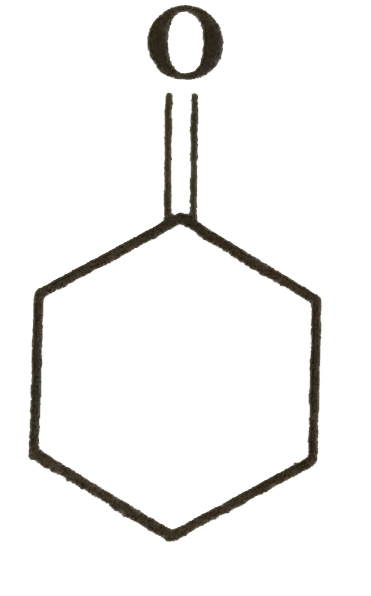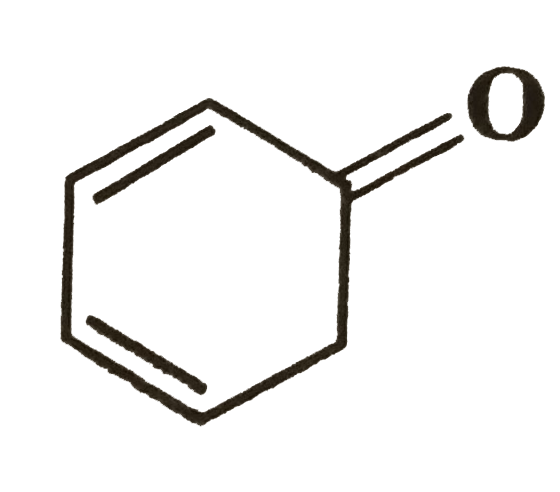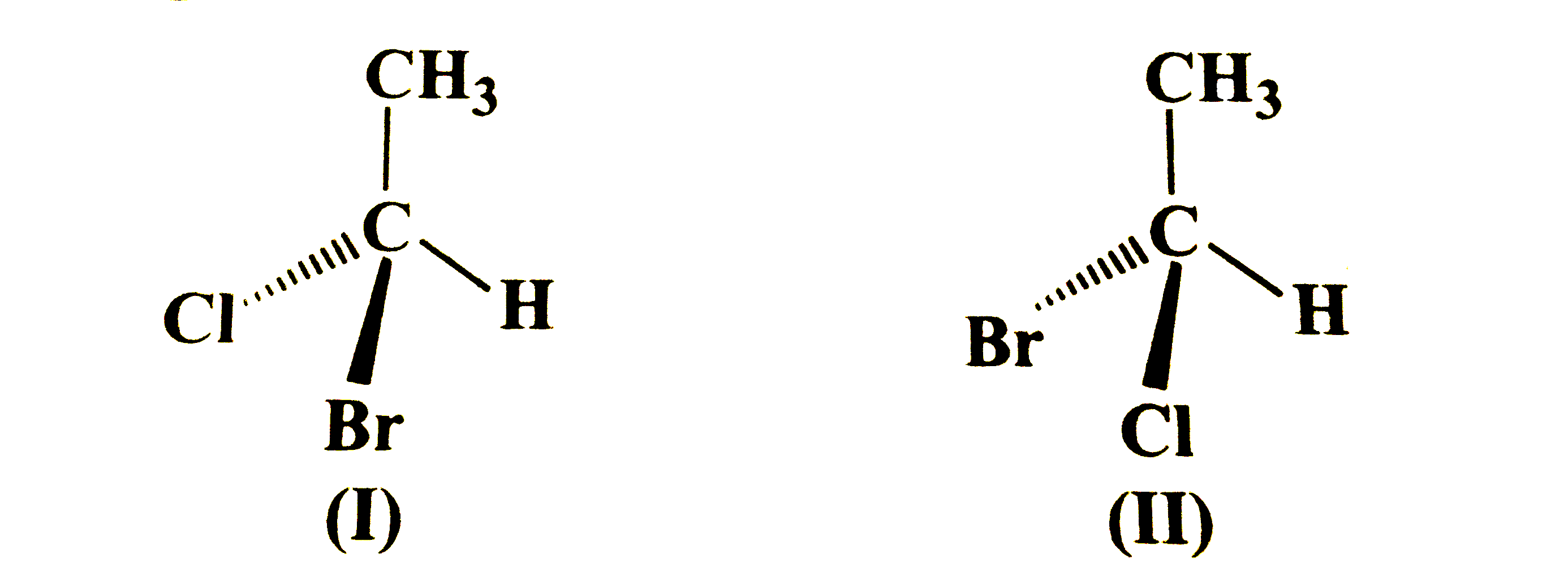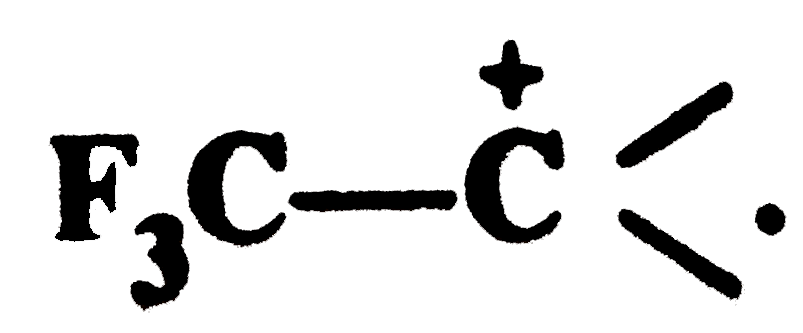Complete Solutions to Analytical Questions and Problems with Answers/Solutions (Questions) of chapter ORGANIC CHEMISTRY-SOME BASIC PRINCIPLES TECHNIQUES of Class 11 book with complete answers and questions
| Class 11 | CHEMISTRY |
| Chapter | ORGANIC CHEMISTRY-SOME BASIC PRINCIPLES TECHNIQUES |
| PRADEEP | Analytical Questions and Problems with Answers/Solutions (Questions) |
| Number Of Questions | 16 |
| Academic Year | 2023-24 |
Conversion of 1-bromobutane (I) to 2-bromobutane (II) is called isomerisation reaction. Will conversion (I) to 1-bromo-2-methylpropane (III) be also called an isomerization reaction? Justify your answer ?

View SolutionThe four hydrogens atoms of ethane lie in a plane. Do you think, four hydrogen atoms of allene (i.e., `H_(2)C = C = CH_(2)`) also lie in a plane? Comment.
View SolutionExplain why
 exists in keto form but
exists in keto form but  exists in the enol form?
exists in the enol form?
View SolutionConsider the following carbocations?

Arrange them in decreasing order of the length of the bond as indicated by the arrows.
View SolutionWith proper reasoning, arrange the following resonance structures in order of decreasing stability.
I. `H_(2)C = overset(+)(N)=N^(-)` II. `H_(2)overset(+)(C)-N = N^(-)` III. `H_(2)C^(-) - overset(+)(N) -= N` IV. `H_(2)C^(-) - N = N^(+)`
View SolutionIodide is a better nucleophile than bromide.Explain
View Solution`H_(3)O^(+)` or `RN_(4)^(+)` neither acts as an electrophile nor as a nucleophile. Explain why ?
View Solution`H_(2)C = O` or `CH_(3)CN` acts as a nucleophile as well as an electrophile. Explain
View SolutionOut of
 which will be eluted first in moderately polar solvent and why ?
which will be eluted first in moderately polar solvent and why ?
View SolutionA compound which does not give a positive test in Lassaigne's test for nitrogen is:
View SolutionThe 3D structure of a compound is given below :

Write the 3D structure of is stereoisomer.
View SolutionA compound which does not give a positive test in Lassaigne's test for nitrogen is:
View SolutionAlthough C-D bond is stronger than C-H bond, yet `(CH_(3))_(3)C^(+)` (i) is more stable than `(CD_(3))_(3)C^(+)` (ii) Why so ?
View SolutionAlthough F has high -I effect, yet `F_(3)C^(+)` is more stable
 . Explain why is it so ?
. Explain why is it so ?
View SolutionWhy less stable carbocations tend to rearrange to more stable carbocations but carbanions and free radicals do not ? Why so ? Explain.
View SolutionAlthough carbocations are always planar but carbanions and free radicals can assume either planar or pyramidal geometry. Why is it so ? Explain.
View Solution
Analytical Questions and Problems with Answers/Solutions (Questions) questions and complete solutions for chapter ORGANIC CHEMISTRY-SOME BASIC PRINCIPLES TECHNIQUES of PRADEEP CHEMISTRY (HINGLISH) of Class 11
All Exercises from PRADEEP Class 11 CHEMISTRY ORGANIC CHEMISTRY-SOME BASIC PRINCIPLES TECHNIQUES
- Additional Questions (Long Answer Type Questions)
- Additional Questions (Short Answer Questions)
- Additional Questions (Very short Answer Questions)
- Analytical Questions and Problems with Answers/Solutions (Problems)
- Analytical Questions and Problems with Answers/Solutions (Questions)
- Competition Focus (Jee (Main and Advanced)/Medical Entrance) II. Multiple Choice Questions (with one or more than one correct answers)
- Competition Focus (Jee (Main and Advanced)/Medical Entrance) III. Multiple Choice Questions (Comprehension)
- Competition Focus (Jee (Main and Advanced)/Medical Entrance) I. Multiple choice Questions (With One Correct Answer)
- Competition Focus (Jee (Main and Advanced)/Medical Entrance) IV. Matching Type Questions
- Competition Focus (Jee (Main and Advanced)/Medical Entrance) V. Matrix-Match Type Questions
- Competition Focus (Jee (Main and Advanced)/Medical Entrance) VI. Integer Type Questions
- Competition Focus (Jee (Main and Advanced)/Medical Entrance) VII. Numerical Values Type Questions
- Competition Focus (Jee (Main and Advanced)/Medical Entrance) VIII. Assertion-Reason Type Questions
- Conceptual Questions (I. Hybridization Classification and Nomenclature)
- Conceptual Questions (II. Isomerism)
- Conceptual Questions (III. Fundamental Concepts of Organic Reaction Mechanism)
- Conceptual Questions (IV. Purification and Separation of Organic Compounds)
- Curiosity Questions
- NCERT EXEMPLAR PROBLEMS WITH ANSWERS, HINTS AND SOLUTIONS (Assertion and Reason Type Questions)
- NCERT EXEMPLAR PROBLEMS WITH ANSWERS, HINTS AND SOLUTIONS (Long Answer Type Questions)
- NCERT EXEMPLAR PROBLEMS WITH ANSWERS, HINTS AND SOLUTIONS (Matching Type Questions)
- NCERT EXEMPLAR PROBLEMS WITH ANSWERS, HINTS AND SOLUTIONS (Multiple Choice Questions - I)
- NCERT EXEMPLAR PROBLEMS WITH ANSWERS, HINTS AND SOLUTIONS (Multiple Choice Questions - II)
- NCERT EXEMPLAR PROBLEMS WITH ANSWERS, HINTS AND SOLUTIONS (Short Answer Questions)
- NCERT Questions and Exercises With Answers
- Problem For Practice
- Solved Problem
- Test Your Grip (I. Multiple Choice Questions)
- Test Your Grip (II. Fill in the Blanks)
- Test Your Grip (Multiple Choice Questions)